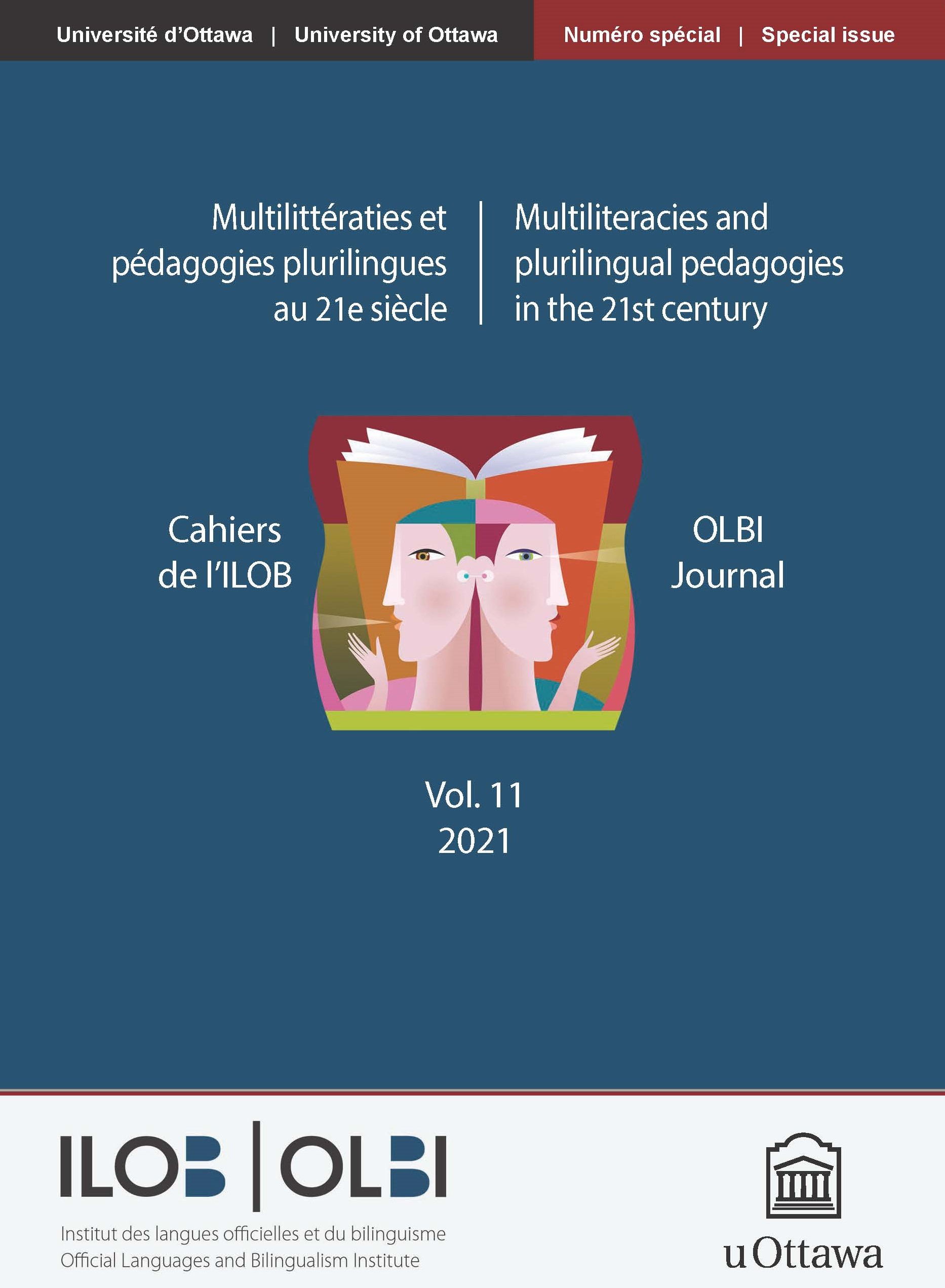Academic writing re-designed: Connecting languages and literacy in the assemblage of EAP
DOI:
https://doi.org/10.18192/olbij.v11i1.6180Keywords:
multiliteracies, assemblage, affect, EAP, neoliberalismAbstract
This study draws on the combined perspectives of “A pedagogy of multiliteracies” (New London Group, 1996) and assemblage and affect (Deleuze & Guattari, 1980/1987) to examine how neoliberal identities shape how English for academic purposes (EAP) students compose a source-based research paper. Such exploration is necessary to account for the range of influences that contribute to students’ meaning making and textual production, especially when academic dishonesty is involved. Interview data from one atypical student participant is presented and analyzed through the post-qualitative method of rhizoanalysis to highlight how (mis)intended meaning in the design process can be (mis)interpreted. Analysis from a pedagogy of multiliteracies framework combined with assemblage and affect reveal the unsuspecting neoliberal influence that shape learning experiences in EAP. Based on these findings, critical implications for EAP pedagogy and research are proposed to address international students’ lived realities as digital-transnational citizens.
Downloads
Published
Issue
Section
License
Copyright (c) 2021 Eugenia (Gene) Vasilopoulos

This work is licensed under a Creative Commons Attribution 4.0 International License.
Authors who publish with OLBI Journal agree to the following terms:
- Authors retain copyright and grant the OLBI Journal (OLBIJ) right of first publication with the work simultaneously licensed under a Creative Commons Attribution License that allows others to share the work with an acknowledgement of the work's authorship and initial publication in the OLBIJ.
- Authors are able to enter into separate, additional contractual arrangements for the non-exclusive distribution of the OLBIJ's published version of the work (e.g., post it to an institutional repository or publish it in a book), with an acknowledgement of its initial publication in the OLBIJ.
- Authors will not simultaneously submit the same piece of work for possible publication to more than one academic journal at a time.


